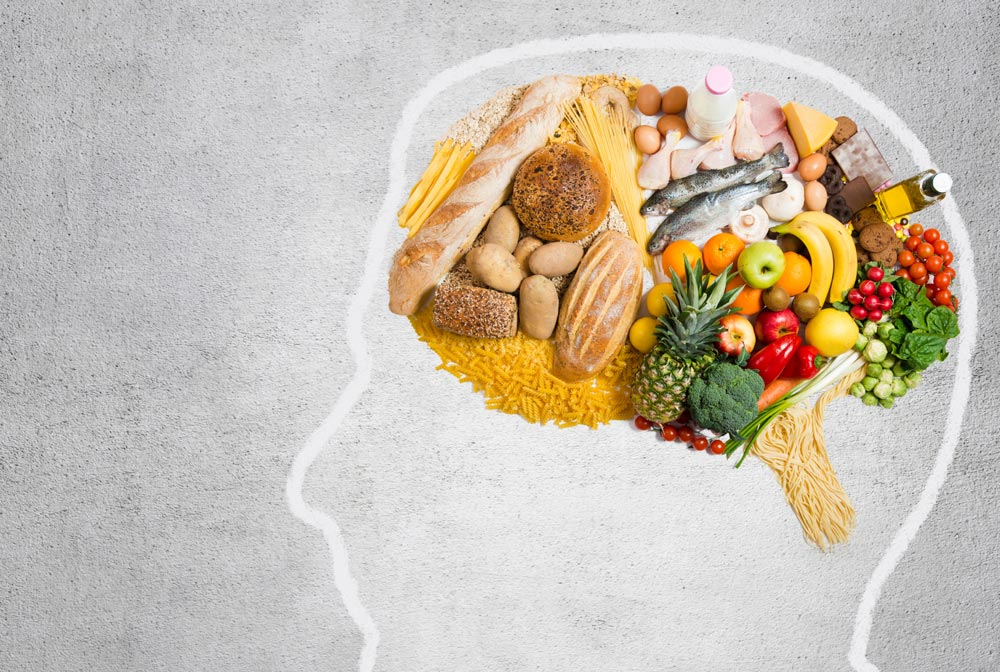Table of Contents
Exercise Daily – Maintaining a healthful diet during times of stress is crucial for both our physical and mental well-being. Stress can often lead to unhealthy eating habits, such as overeating or reaching for comfort foods high in sugar and fats. However, with some mindful choices and planning, it is possible to nourish our bodies even during challenging times. Here are ten tips to help you maintain a healthful diet when under stress.
Firstly, prioritize nutrient-dense foods. Focus on consuming fruits, vegetables, whole grains, lean proteins, and healthy fats. These foods provide essential vitamins, minerals, and antioxidants that support overall health and reduce the negative effects of stress and inflammation on the body.
Introduction to Stress and Diet
Stress, that unwelcome intruder in our lives, can wreak havoc on our diet. It’s easy to reach for comfort foods when we’re feeling overwhelmed. But did you know that what we eat can also influence our stress levels?
The Connection Between Stress and Unhealthy Eating
When we’re stressed, our bodies produce a hormone called cortisol. This “stress hormone” can trigger cravings for sweet, salty, and fatty foods – just the kind of comfort foods that can derail a healthful diet. And the more we give in to these cravings, the more we reinforce the stress-eating habit. Sounds like a vicious cycle, right?
The Importance of a Healthful Diet During Stress
But here’s the thing – a healthful diet can actually help to manage stress. Nutrient-rich foods can boost our mood, energy levels, and overall resilience, helping us to navigate stressful situations more effectively. Now, wouldn’t you want that?
10 Tips for Maintaining a Healthful Diet During Stress
Here are 10 tips to help you eat regularly and maintain a healthful diet, even when life throws you a curveball.
1. Planning and Preparing Meals Ahead
Planning and preparing healthy meals ahead of time is a key component of maintaining a healthful diet, especially during stressful periods. It allows you to take control of your food choices and reduces the likelihood of succumbing to unhealthy options when stress strikes. Similar to a well-thought-out plot in a book, a carefully planned meal strategy sets the stage for success in nourishing your body and supporting your overall well-being.
By engaging in meal planning, you proactively stay one step ahead of stress-induced cravings and unhealthy eating habits. Take some time each week to plan your meals, considering your nutritional needs and incorporating a variety of nutrient-dense foods. This approach allows you to create a roadmap for your meals, making it easier to make healthful choices when stress may cloud your judgment.

2. Eating Regularly and Not Skipping Meals
Maintaining regular meal patterns and avoiding skipping meals is a vital aspect of a healthful diet, particularly during times of stress. Hunger can exacerbate negative emotions and affect our overall well-being. By prioritizing regular meals, we can stabilize our own blood pressure and sugar levels, support our mood, and maintain consistent energy levels.
Hunger not only affects our physical sensations but also has a profound impact on our mental and emotional states. When we allow ourselves to become overly hungry, our ability to concentrate diminishes, irritability may arise, and our overall mood can be negatively affected. By eating healthy, regular meals, we can avoid these detrimental consequences and promote a more balanced state of well-being.

3. Prioritizing Nutrient-Dense Foods
Prioritizing nutrient-dense foods is a fundamental aspect of maintaining a healthful diet, especially during times of stress. Nutrient-dense foods are rich in essential vitamins, minerals, fiber, and protein, which provide numerous benefits for our physical and mental well-being. By filling our plates with these nutrient powerhouses, we can boost our mood, enhance our energy levels, and improve our ability to cope with stress effectively.
Nutrient-dense foods are abundant sources of essential vitamins and minerals that our bodies need to function optimally. These nutrients play a vital role in various physiological processes, including energy production, immune function, and brain health.
By including a diet of quality good nutrition and a variety of fruits, vegetables, whole grains, lean proteins, and healthy fats in our meals, we ensure that we provide our bodies with the necessary nutrients to support overall well-being and combat the negative effects.

4. Keeping Hydrated
Amidst the busyness and stress of daily life, it’s easy to overlook the simple act of staying hydrated. However, maintaining proper hydration is crucial for our overall health and well-being. Water is essential for numerous bodily functions, and dehydration can have adverse effects on our physical and emotional behavior and mental states.
Water is the primary component of our bodies and is involved in various vital functions. It helps regulate body temperature, lubricates joints, aids digestion, transports nutrients, and flushes out waste products. When we are dehydrated, these functions can be compromised, leading to fatigue, impaired cognitive brain function, and decreased physical performance. By staying hydrated, we ensure that our bodies can carry out these functions optimally, promoting overall health.

5. Limiting Intake of Processed Foods and Sugary Drinks
Limiting the intake of processed foods and sugary drinks is a crucial aspect of maintaining a healthful diet, particularly during times of stress. While these options may provide a quick energy boost, they are often followed by a crash, leaving us feeling tired and unsatisfied. Instead, focusing on nutrient-dense foods that provide steady energy can support our overall well-being and help us cope better with stress.
Processed foods are often high in added sugars, unhealthy fats, and sodium while lacking essential nutrients. These foods can lead to energy crashes, mood swings, obesity, and weight gain. Additionally, their low fiber content can leave us feeling unsatisfied and prone to overeating. By limiting the intake of processed foods, we can reduce the negative impact on our energy levels and overall health.

6. Mindful Eating
In our fast-paced lives, it’s easy to rush through meals without truly savoring and appreciating the food we consume. However, research shows, practicing mindful eating is a valuable habit, even during busy times. Mindful eating involves being fully present and attentive while enjoying our meals, and it can help prevent overeating, promote healthy digestion, and enhance the satisfaction we derive from our food.
Mindful eating encourages us to slow down and savor each bite. By paying attention to the flavors, textures, and aromas of our food, we can fully immerse ourselves in the eating experience. This heightened awareness allows us to derive greater enjoyment and satisfaction from our meals. Instead of rushing through meals, allocate dedicated time to eat without distractions, such as screens or work, and focus solely on the sensory experience of eating.

7. Getting Adequate Sleep
Getting adequate sleep is a critical component of maintaining overall health and well-being, especially during stressful times. Sleep deprivation can intensify stress and hormone levels, and increase the likelihood of making poor food choices. By prioritizing sufficient sleep, we support our body’s ability to cope with stress, regulate hormones, and make healthier dietary decisions.
Sleep and stress have a reciprocal relationship, with each influencing the other. Lack of sleep can heighten stress and anxiety levels, making it more challenging to manage and cope with daily stressors. Conversely, high levels of stress can disrupt sleep patterns, leading to insomnia or poor sleep quality. By prioritizing adequate sleep, we provide our bodies with the rest, nutrition and recovery necessary to better handle stress and promote overall well-being.
8. Regular Exercise
Regular exercise is a powerful tool for managing stress and promoting overall well-being. In addition to its numerous physical and mental health benefits, daily exercise plays a vital role in regulating appetite and energy levels. By incorporating regular physical activity into our routines, we can reduce stress, improve our mood, and maintain a healthier relationship with food.
Exercise is known to be an effective stress-buster. Physical activity stimulates the release of endorphins, which are natural mood-enhancers and helps reduce the levels of stress hormones in the body. Engaging in regular exercise, whether it’s aerobic activities, strength training, or mind-body exercises like yoga or tai chi, can significantly alleviate stress and improve overall mental well-being. View the Yoga Exercises for Seniors.

9. Managing Stress
Effective stress management is crucial for maintaining optimal health and well-being, as chronic stress can have detrimental effects on our physical and mental states. Finding healthy ways to manage stress, such as engaging in activities like yoga, meditation, or spending time in nature, is essential for breaking the cycle of stress and unhealthy eating habits.
Stress triggers the release of hormones like cortisol and adrenaline, preparing the brain and body for a “fight or flight” response. While this response can be beneficial in short bursts, chronic stress can eventually lead up to negative health outcomes.

10. Seeking Support
During times of stress, maintaining a healthful diet can be challenging, and seeking support is a valuable step toward success. Asking for help from professionals such as dietitians or therapists, as well as reaching out to supportive friends or loved ones, can provide guidance, encouragement, and accountability. In this article, we will explore the benefits of seeking support and how it can positively impact our ability to maintain a healthful diet during stressful times.

Conclusion
Stress can make it challenging to maintain a healthful diet, but with these tips, you’ll be well-equipped to navigate those challenges. Remember, it’s all about taking small steps towards healthier habits – and every step counts.
FAQs – Maintaining a Healthful Diet During Times of Stress
Can stress cause weight gain?
Yes, long-term stress and depression can lead to changes in eating habits and metabolism, potentially leading to weight gain.
What are some stress-reducing foods?
Foods like dark chocolate, citrus fruits, nuts, seeds, fish, fruit, and green leafy vegetables can help reduce stress.
How does exercise help maintain a healthful diet during stress?
Exercise helps reduce stress and cortisol levels and regulate appetite, making it easier to stick to a healthful diet.
Why is sleep important for a healthful diet during stress?
Lack of sleep can increase cravings for unhealthy foods and snacks and make it harder to resist stress eating.
What should I do if I can’t manage stress and maintain a healthful diet on my own?
Consider seeking support from a healthcare professional, such as a dietitian or therapist.






